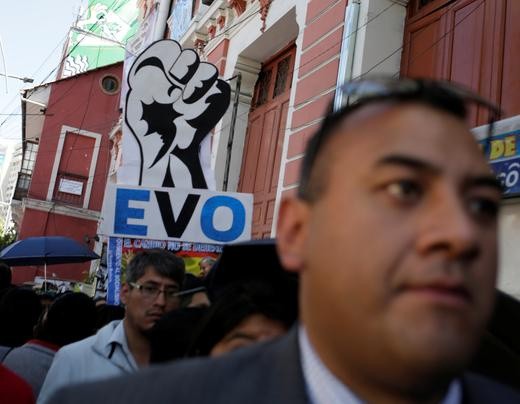Bolivia’s Crisis: President gets Exiled to Mexico

Evo Morales, the recently unseated president of the country of Bolivia had accomplished a lot of milestones in his approximately fourteen years of leadership in the country.
His leadership had caused the growth of the economy of Bolivia, lesser cases of inequality, and the emergence of a new type of middle class. His leadership also led to the indigenous community in the Andean Country to attain new levels of education by allowing them to avail an extended basic social service.
Out of the total population of Bolivia, two-thirds belongs to the indigenous community. Evo Morales was the first indigenous president of the country. His leadership in the country had resulted in acquiring a higher level of respect for the indigenous population.
Despite his numerous contributions to the country, especially to the indigenous community, just like some leaders, he was a victim of the temptations that come along with power. Regardless of the stronghold of democracy in the countries in Latin America, temptations are always present for the leaders of a land. This may have contributed to the current Bolivia crisis.
The Bolivia crisis resulted when he recently refused to follow the law of the land by sitting in power for a fourth term upon his success in the elections that were held last month. This is illegal in the country.
The former president of Bolivia had acquired asylum in the country of Mexico on November 12. He had sent his resignation letter on Sunday and left the office to live in Mexico. His resignation was caused by the social protests against his leadership in the country. He had seen the protests as a way of the people of Bolivia to go against him.
According to the constitution of Bolivia, attaining another term in the presidency is prohibited.
When the highest court in the country had decided that illegal acquisition of a new term as a president violates the human rights of the candidates, fifty-one percent of the voters refused to allow Mr. Morales to run for another term in the presidency.
According to the Organization of American States and experts from the global community, the elections of last month contained irregularities and the results are doubtful. These resulted in a request for new voting of the new president. Those that took the side of Mr. Morales now switched sides and this led to the end of Mr. Morales' presidency.
The supporters of Mr. Morales had stood their claims regarding the legality of his removal from office.
"The mistake Morales made - and that still too many leaders make - is that he overstayed his welcome. He decided he liked being in power, and so he disregarded the democratic norms, some of which he implemented, that were designed to limit one leader's hold on power and to prevent this kind of crisis," says Richard Feinberg, an expert to the study and history of democracy in the Americas.
As of the moment, the country of Bolivia is looking forward to its future in overcoming confusion and unstable leadership from the administration that Mr. Morales had left behind. Despite the current Bolivia crisis, the country is currently aiming to retain the gains that former president Morales and his administration had left.
Subscribe to Latin Post!
Sign up for our free newsletter for the Latest coverage!
© 2025 Latin Post. All rights reserved. Do not reproduce without permission.















